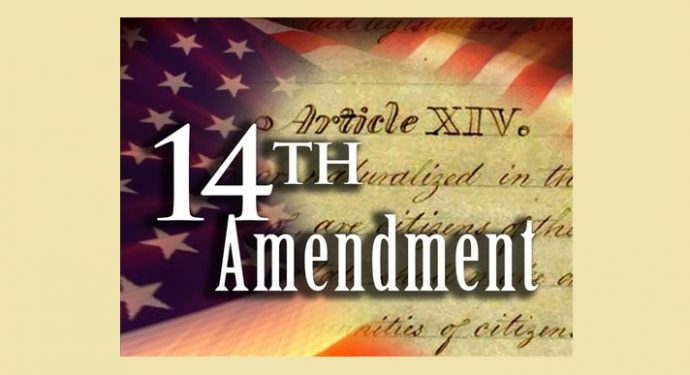Here is a fascinating and sensible argument from Michael Bargo, Jr. writing at American Thinker:
Public sector pension contracts have started to bankrupt communities and threaten the economic viability of states such as Illinois. Taxpayers are entitled to a conversation as to whether or not these contracts violate the U.S. Constitution.
In many states, public sector pension contracts are protected by clauses in that state’s constitution. The words usually used are that public sector pension contracts are contractual agreements that “cannot be diminished or impaired.”
An argument against these would take the position that under the Fourteenth Amendment all persons are guaranteed equal protection under state laws. No state can pass a law, for example, which clearly specifies that the minimum wage for a man must be four dollars an hour more than the minimum wage paid to a woman.
No one would defend such a law because it clearly classifies persons into two groups. But this is exactly what state constitutions do with regard to pension contracts. These clauses clearly state that only government workers’ contracts are binding contractual agreements that cannot be diminished or impaired.
One way to understand the principle involved is to understand it as specifying a group. What if these clauses of state constitutions said that only contractual agreements entered into with men cannot be diminished or impaired. Or white residents of the state. This would be considered so outrageous that states would never contemplate even proposing such a clause in their state constitutions.
But these clauses clearly do specify only one type of contract to be protected; only those contracts made with one group of people, government employees. Those who do not have government contracts are not protected. While the Fourteenth Amendment was originally directed toward the southern states’ treatment of freed slaves after the Civil War, it has since been expanded to protect other groups of persons such as women and those desiring same-sex marriage. If one cannot discriminate based on race, sex, age, ethnic origin, gender identity, and other group identifiers, it becomes difficult to defend the idea that a group identifier that defines one’s employer can withstand constitutional scrutiny. Illinois’ constitution actually specifies that government workers have their own “Pension and Retirement Rights,” rights denied to everyone else. These unequal rights are enforced by state government.
Read more: American Thinker
Image credit: www.examiner.com.

